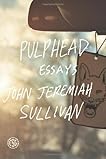 No Man Knows My History: The Life of Joseph Smith by Fawn M. Brodie
No Man Knows My History: The Life of Joseph Smith by Fawn M. BrodieMy rating: 4 of 5 stars
Who was the first Mormon to run for president? No, not Willard "Mitt" Romney, but the founder of Romney's church, Joseph Smith. I wanted to read this book precisely because I am curious about the origins of Mormonism, considering that the Republican candidate for president this year comes from an illustrious Mormon family and was a bishop in the church, the head of the Boston "stake" (what would be a diocese in Catholic terminology.)
This is an objective book, as objective as a book can be whose subject is a fraud, a liar, a convicted swindler and a child molester. Smith started out his career by swindling land owners into paying him to locate buried treasure. He was tried and convicted for that. Even if you believe his preposterous story about finding golden tablets, which he could never show anyone, which contained stories pretty much plagiarized wholesale from other accounts extant in his day of the lost tribes of Israel being the ancestors of the Indians, the proven lies he repeatedly told as head of the Mormon church makes any straight-forward account of his life seem like it's picking on him.
Some of the more egregious lies were the ones he told about his sexual practices. It is well documented that he repeatedly seduced women by convincing them that God had commanded them to "marry" him and that it included girls as young as 14 and 15. These "marriages" were not conducted as one might think a religious prophet who believed he was commanded by God to engage in polygamy would conduct them. These were not marriages conducted in the open "in front of God and these witnesses" with women who then became part of his household. They were done in secret, some with women who were already married and who continued to live with their "earthly" husbands, and he repeatedly denied that he was doing it to his wife and the bulk of his church members.
Although Mormons claim to be Christians, Smith didn't teach the familiar Jesus who urged his followers to renounce earthly possessions and to turn the other cheek when oppressed. Smith had his own militia, with himself as the "Brigadier General" and they were ordered to turn the earth red with the blood of those who persecuted them. At Nauvoo, IL, the scene of the death of Smith at the hands of an outraged mob, he controlled all of the land. He bought it at low prices and sold it at inflated prices to followers coming to the town. Smith ran for President of the United States and told some of his followers that God had told him he would be "King of the World."
So, what does all this have to do with Willard "Mitt" Romney? He comes from a background and religious tradition where deception is part of the heritage. Look at the way he is running for president and then read this book. It's all part of who Romney is.
Yes, I believe in freedom of religion. I don't have a problem with electing a man president of the United States who believes in myths which I cannot accept. I don't have a problem with electing a man president who believes in or even practices polygamy. Polygamy has at least as much support in the Bible as monogamy. But, I do have a problem with electing a man as president whose religion is based on fraud, lying and sexual predation.










